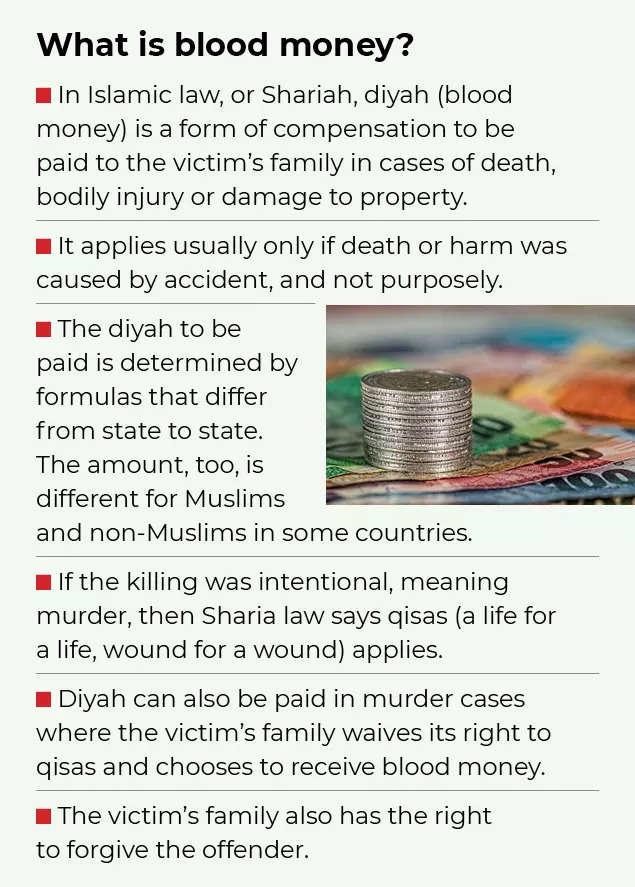Understanding Blood Money: Origins, Practices, and Implications
Why in the news?
Nimisha Priya, an Indian nurse in Yemen, faces the death penalty for murder. Her family’s efforts to secure her release through monetary compensation (diya), as per Sharia law, have spotlighted the concept of blood money globally.
Blood Money in Different Nations:
- Saudi Arabia: Integrated with statutory laws, it applies to road accidents and workplace incidents. Sharia courts determine compensation amounts. Efforts to ensure equal compensation for men, women, Muslims, and non-Muslims are ongoing.
- Iran: Women receive half the compensation of men. In 2019, a law aimed to equalize payments, though implementation is incomplete.
- Pakistan: Blood money provisions were included in mainstream law through the Criminal Laws (Amendment) Ordinance, 1991. Judicial oversight ensures fairness.
India’s Perspective and Similar Cases
- No Formal Provision: India lacks a blood money system in its legal framework but permits plea bargaining, where the accused negotiates for leniency by pleading guilty.
- Historical Cases: Examples include Arjunan Athimuthu (2019), whose death sentence in Kuwait was commuted after ₹30 lakh was paid, and Abdul Rahim, pardoned in Saudi Arabia after paying ₹34 crore.
- Nimisha Priya’s Case: Her death sentence in Yemen has reignited discussions on blood money as her family pursues avenues for her acquittal.
What is Blood Money?
- Definition: Blood money, or diya, originates from Islamic Sharia law. It involves compensating victims or their families with monetary or asset payments by the perpetrator of a crime.
- Purpose: It is predominantly applied in cases of unintentional murder, culpable homicide, or murder where the victim’s family opts for compensation instead of retribution (qisas).
- Goal: The aim is not to place a monetary value on life but to support the affected family financially and emotionally.
- Contemporary Practices: Blood money is practiced in many Islamic nations, including Saudi Arabia, Iran, and Pakistan, often influenced by gender, religion, and nationality of the victim.
Sources Referred:
PIB, The Hindu, Indian Express, Hindustan Times





